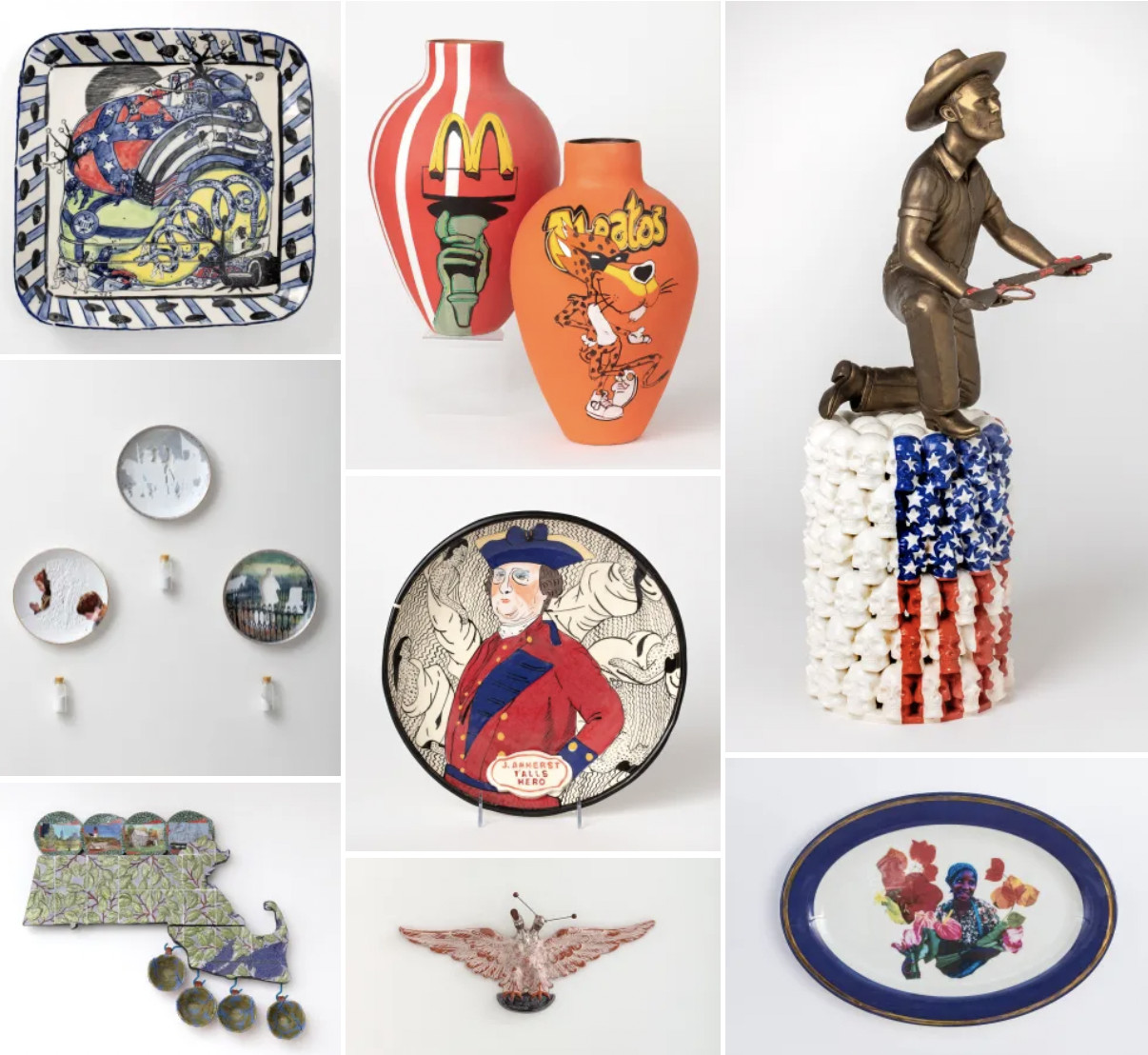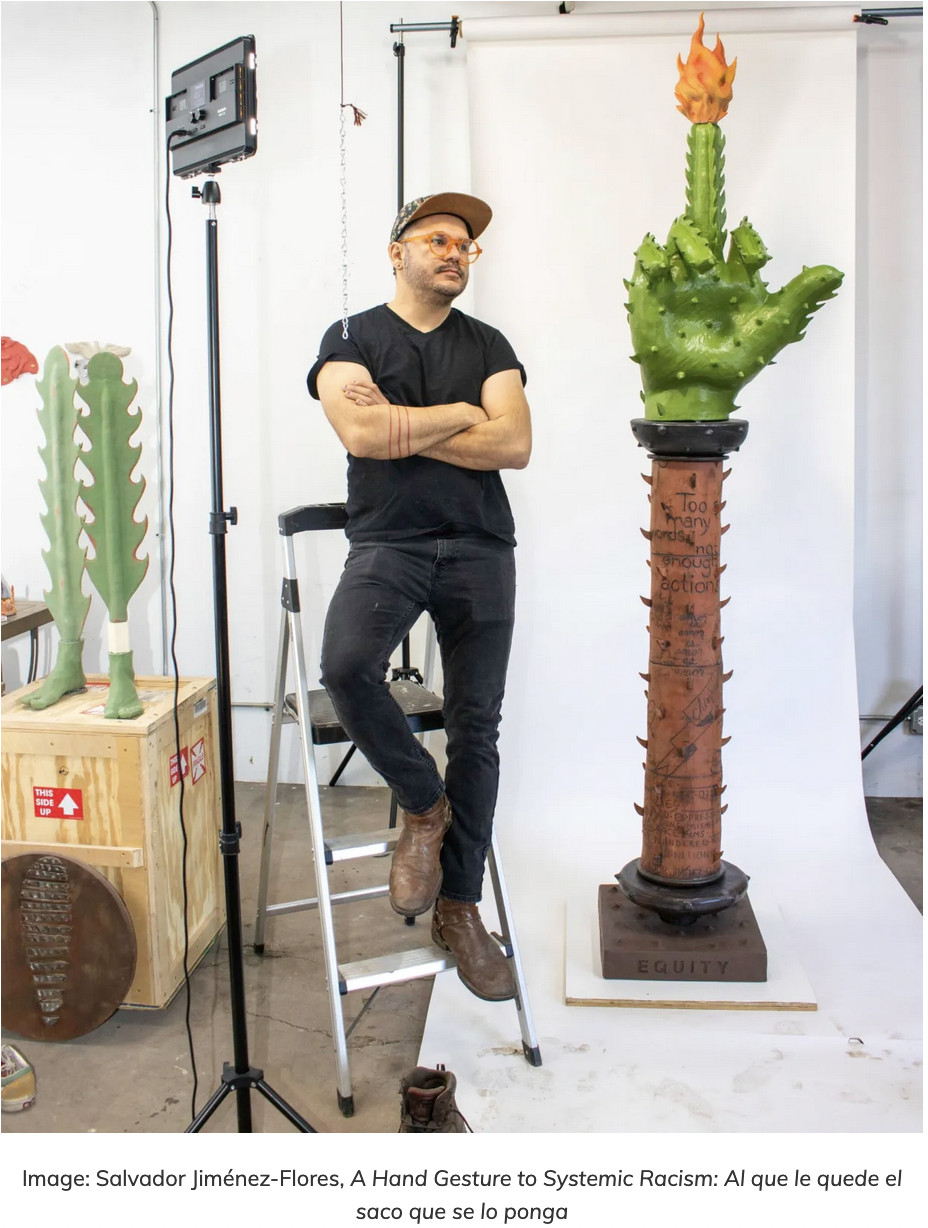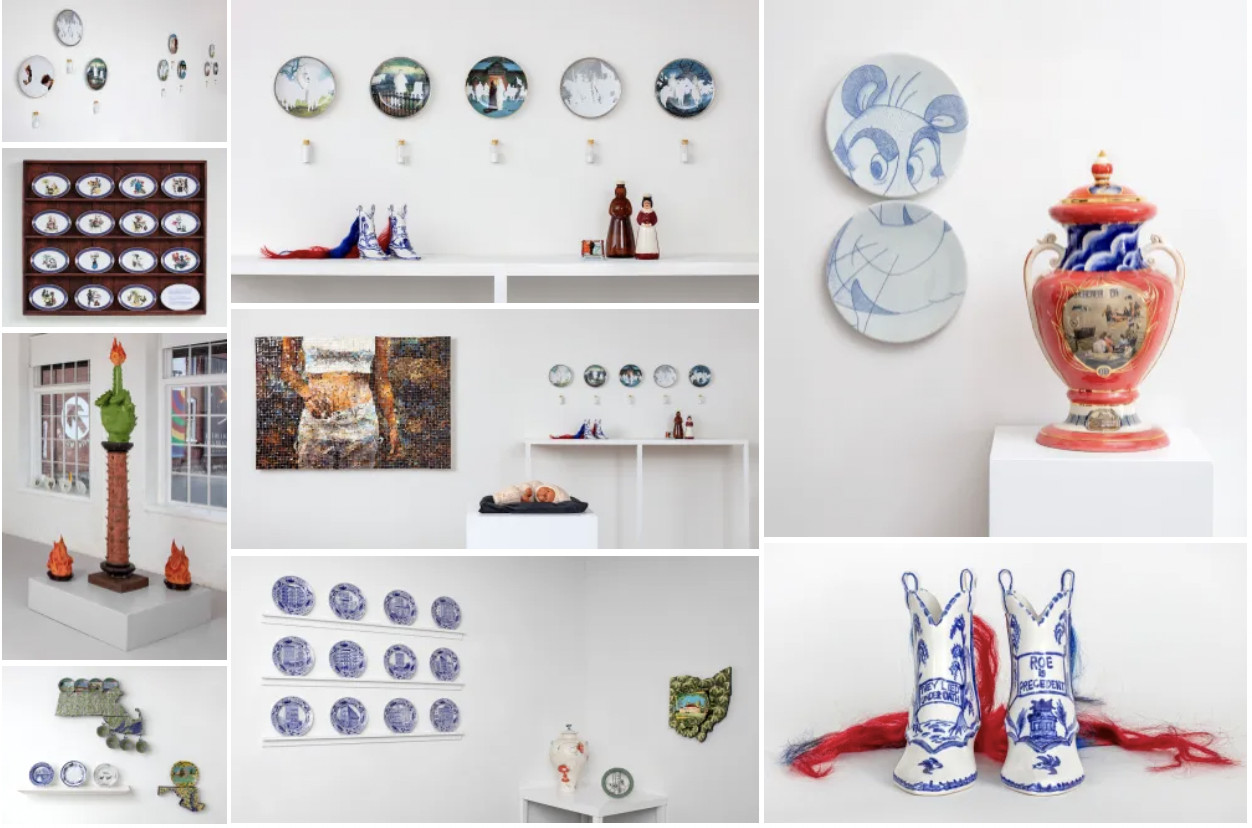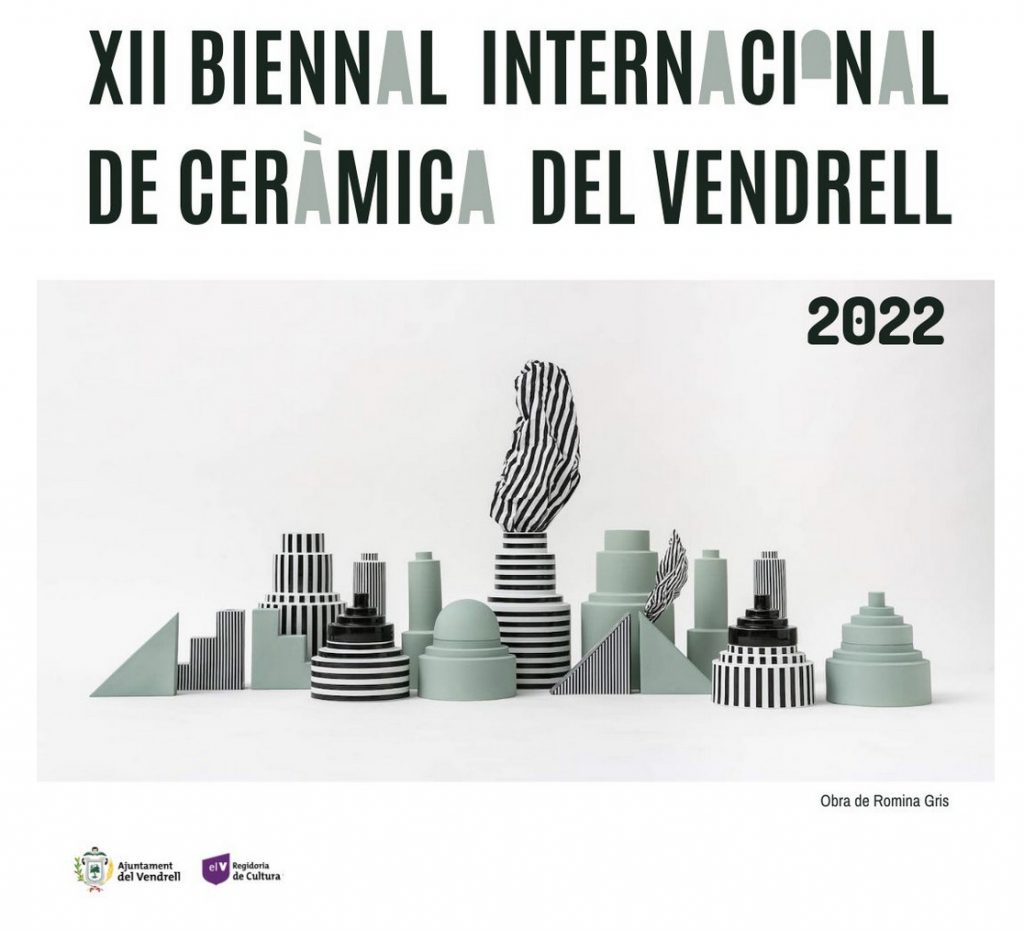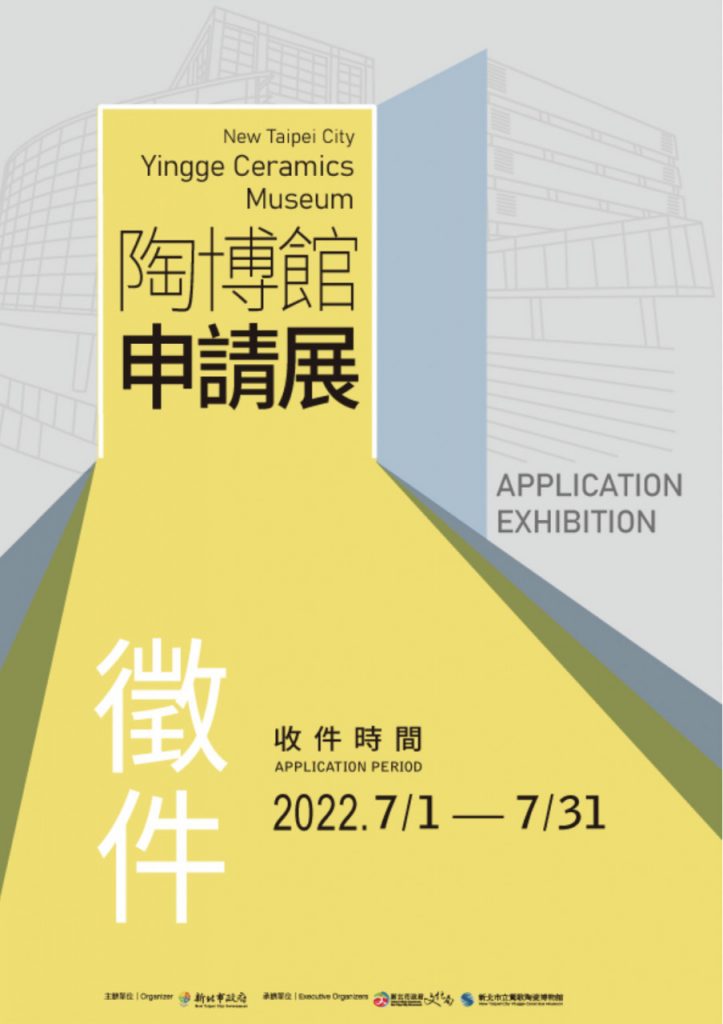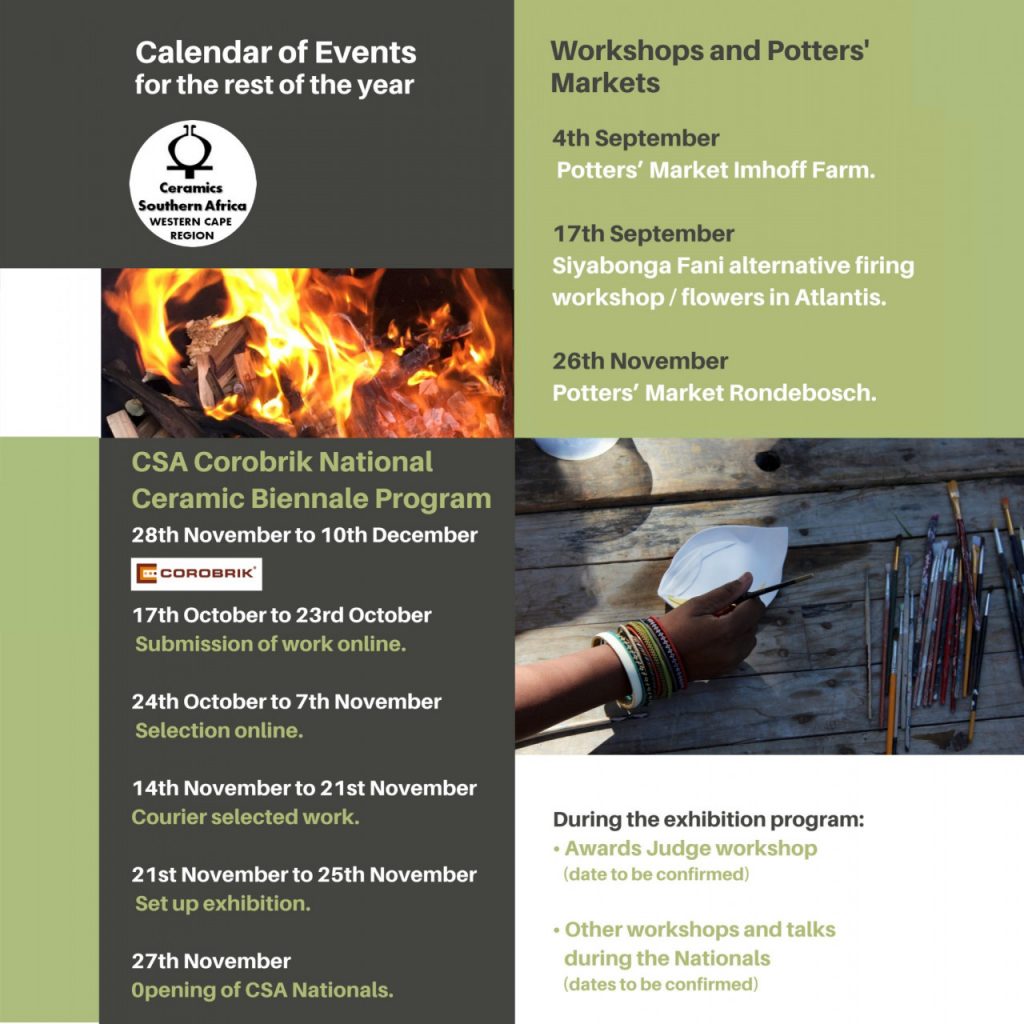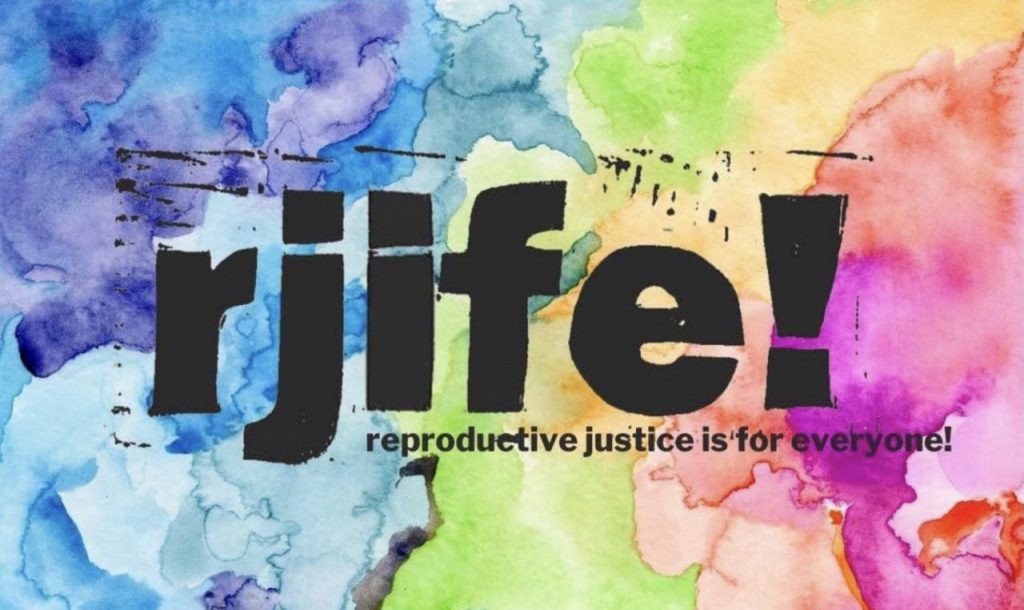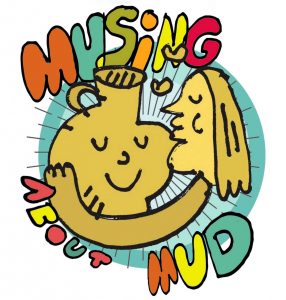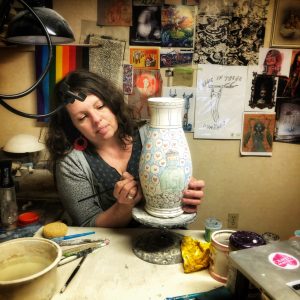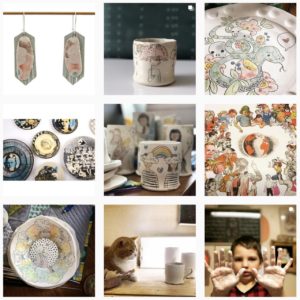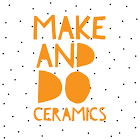Our America/Whose America? @ FERRIN CONTEMPORARY
Throughout our forty year history, we have used multi-artist survey exhibitions as a platform to explore social issues. We’ve focused on gender and feminist perspectives, broached relationship taboos, and challenged historical notions of ceramics and art. Last summer we partnered with Heller Gallery to present MELTING POINT as a way to use the mediums of ceramic and glass to address issues surrounding climate change. Now, it is time to turn our lens on the racist representations in mass market ceramics.
Our America, Whose America will present a dialogue between contemporary artists and a collection of commercially produced ceramics. This collection of historical objects, collected across the span of several years by Founding Director Leslie Ferrin, are in the form of plates, souvenirs, and figurines from the early 19th through mid-20th centuries. The items were produced in England, Occupied Japan, and various factories in the USA. The exhibition title was chosen from a series of plates produced by Vernon Kiln that features illustrations of American scenes by the painter Rockwell Kent.
In response to this historical collection, contemporary works by nearly 30 participating artists will provide new context and interpretation of these profoundly powerful objects. Seen now, decades and in some cases centuries later, the narratives they deliver through image, characterization, and stereotype, whether overt and bombastic or subtle and cunning, form a collective memory that continues to impact the way people see themselves and others today.
The contemporary artists we’ve invited use their work to assert their autonomy and subjectivity by presenting intertwined cultural critiques through lenses of their own choosing, starting with race, gender, and class. Each of these categories is tentacular and touch upon myriad other ideas including nature, warfare, food and water inequity, and more.
Visit Ferrin Contemporary online for more.

